

大家下午好。
Good afternoon.
很榮幸有機會與您分享關於教育在建設充滿活力社區中所起
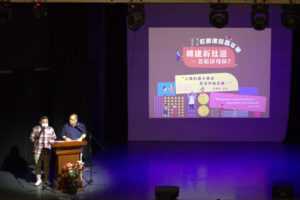
的作用,並提供一些想法。當然,對於教育意味著什麼,有許多不同的觀點。因此,我們不打算在此為它作出定義。事實上,在我們所有人的內心深處和在我們的文化中,也有一股強烈的萌動力促使我們關注教育,特別是我們孩子的教育。這就是為什麼我們創建了學校等機構,以實現這一個目的——這個目的不僅服務於我們的個人需求,而且服務於我們的家庭。簡而言之,我們的社區和我們的社會——本身就是在促进文明。稍後我們再來談這個問題,現在讓我們從一個故事開始我們今天的探索。
It is such an honor to be given this opportunity to share with you some thoughts on the role that education plays in building a vibrant community. Surely, there are many different perspectives on what education means. So, we are not going to attempt to define it. Yet deep down in all of us, in fact in our culture as well, there is a strong stirring that prompts us to focus on education, especially the education of our children. That is why we create institutions, such as schools, to fulfill this very purpose—a purpose that serves not only our individual needs, but that of our family, our community, our society—in short, civilization itself. More on this later, let us start our exploration today with a story.
從前有一個男孩和他的家人住在一個墓地附近。男孩的母親注意到她的兒子開始效仿殯葬業者和專業送葬者的行為,因此她決定搬家了。於是,他們搬到城裡。男孩開始模仿附近商人的活動,模仿當地屠宰場的聲音。這母親也認為這不適合她的孩子。
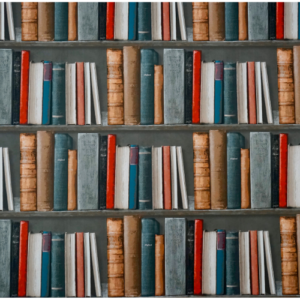
於是,他們又搬到了一所學校附近的小房子裡。在這裡,她的孩子開始模仿老師的舉止、言語和紀律。她對所目睹的一切感到高興,她確信自己終於找到了適合孩子成長的地方。他的孩子也不負所望。他成為一名學者,對中國的哲學和文化影響深遠。
Once there was a boy who lived with his family near a graveyard. Noticing that her son was beginning to emulate the behavior of the undertaker and professional mourners, the boy’s mother decided that the time had come for the family to move. So, they moved into town where the boy began to mimic the activities of the nearby merchants and imitate the sounds from the local slaughterhouse. This, too, she found unworthy of her son. So, they moved again to a small home near a school. Here, her son began to imitate the behavior, speech, and discipline of the teachers. Delighted by what she saw, she was convinced that she had finally found the right place for her boy to grow. And he did. He became a scholar that changed forever the philosophical and cultural landscape of China.[i]
眾所周知,這就是《孟母三遷》的故事。這個故事從廣義上表明了教育的概念。它讓我們瞭解到一位母親的智慧,她在教育子女方面激勵著成千上萬的人。它幫助我們了解教育的真正起點。
This, as many of us will know, is the well-known story of Mencius’s Mother relocating her home three times to improve her son’s education [孟母三迁 (Mèngmǔ sān qiān)]. This story is indicative of the very conception of education in a broad way. It provides insights into the wisdom of a mother who inspired thousands like her in the education of their children. It helps us to understand where education really begins.
家庭是文明的基本單位,這是一個在許多文化中普遍存在的概念。它是建立我們的世界觀和道德人格基礎的地方。孟子的母親選擇了一個靠近學校的家,她大概很瞭解“先天”與“後天”之間的動態關係。創造一個兒童可以茁壯成長的環境,意味著兩種教育者——教師(正式)和家長(非正式)之間的合作和相互支持的關係——在教育兒童的過程中,他們各自在自己的範圍內發揮著影響力。我希望在座的每一位都仍有興趣再多聽一個故事,因為孟子的童年故事並沒有就此結束。
That the family is the basic unit of civilization is a concept that is prevalent in many cultures. It is a place where the foundation of our world view and moral characters is built. Having chosen a home near a school, Mencius’ Mother probably has understood well the dynamic relations between ‘nature’ and ‘nurture’. Creating an environment in which children can flourish implies the collaborative and mutually supportive relationship between two kind of educators—the teachers (formal) and the parents (informal) —each exerting their own influences within their own sphere in educating the child. We hope you are in the mood for at least one more story, if you are not, please bear with us as the story of Mencius’ childhood did not end there.
這個故事就是孟母斷機教子的故事。孟子小時候厭倦學習。有一次她母親發現孟子忽視了他的學業,因此她將一直在織的布裁掉了一半。孟子對這種行為感到震驚,但他的母親告訴他,這不過是和他忽視學業所做的一样,沒有完成的功課,是一文不值的。孟子吸取了教訓,因此發奮圖强。
Another little anecdote further exemplifying his mother’s virtues tells of a time when she found he was neglecting his studies and so cut in half the cloth she had been steadily weaving. Mencius was shocked at this behavior, but his mother told him it was no more than what he, himself, was doing by not finishing his schoolwork and so rendering it worthless. Mencius learned the lesson and returned to his studies.[ii]
通過孟母的故事,我們希望你能看我們希望帶出一點︰就是孩子從家庭得到的指導和支持是教育這張拼圖的關鍵部分。像學校這樣的教育機構只是對教育這張拼圖的一個部分做出貢獻。它不能單獨完成。孩子從家庭得到的支持是至關重要的;它是開始和完成拼圖的第一塊和最後一塊關鍵的材料。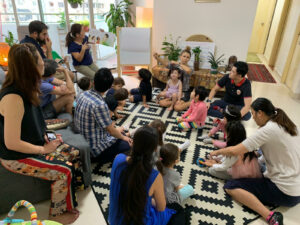 正是在家庭中,我們的習慣和性格的基礎才得以建立。在那裡,大家庭和社區為我們的成長提供了一個肥沃的棲息地。隨著我們的成熟,我們通過行走服務之路,為改善我們的社區作出貢獻。正是在這種方式下,生命的迴圈才得以完成。
正是在家庭中,我們的習慣和性格的基礎才得以建立。在那裡,大家庭和社區為我們的成長提供了一個肥沃的棲息地。隨著我們的成熟,我們通過行走服務之路,為改善我們的社區作出貢獻。正是在這種方式下,生命的迴圈才得以完成。
These stories of the critical role of Mencius’ Mother in his education make us wonder where we got the idea of checking our children’s homework from… We hope you see where we are going with this. The guidance and support a child receives from the family is a crucial piece of the educational puzzle. An educational institution such as a school contributes only a piece to the puzzle that is education. It cannot do it alone. The support a child receives from the family is essential; it is the first and the last crucial piece that begins and completes the puzzle. It is within the family that the foundation of our habits and characters is build. From there, the extended family and the community provide a rich habitat within which we grow. As we mature, we contribute back to the betterment of our community by walking a path of service. It is in this way that the circle of life finds completion.
教育有雙重目的——完善學生的性格和發展他們為社會進步作出貢獻的能力。
Education serves a dual purpose—the refinement of the character of the student and the development of their capacity to contribute to the progress of society.
過去,兒童是由整個社區撫養的。他們生活的方方面面都是由周圍環境塑造的。“兒童乃是社區的最珍貴寶藏,因為他們是未來的希望和保證。他們孕育了未來社會的特徵,而這特徵在很大程度上取決於構成社區的成年人對兒童所做或未做的事情。”教育不僅僅是兒童的權利。它也是他們周圍成年人的責任。在任何社會中,有三個明顯的實體在運作–個人、社區和機構。這些實體中的每一個都要發揮教育的作用。不幸的是,近幾十年來,教育的責任幾乎只放在了作為 “特定種類的正式機構 “的學校身上。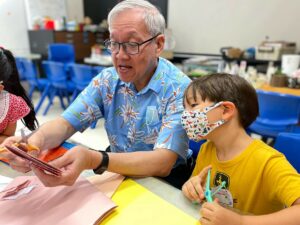 這種有點現代的、專門的定義剝奪了我們作為一個人類社會集體進行學習和教學的豐富遺產。我們需要一種新的方式來看待教育,以及學校如何融入這一概念。在我們的概念中, “學校” 除了是一個機構外,其存在本身就是一個“學習型社區,無論是兒童還是成人,公共還是私人,義務還是自願”。
這種有點現代的、專門的定義剝奪了我們作為一個人類社會集體進行學習和教學的豐富遺產。我們需要一種新的方式來看待教育,以及學校如何融入這一概念。在我們的概念中, “學校” 除了是一個機構外,其存在本身就是一個“學習型社區,無論是兒童還是成人,公共還是私人,義務還是自願”。
It used to be that children were raised by the entire community. Indeed every aspect of their lives is shaped by their surroundings. “Children are the most precious treasure a community can possess, for in them are the promise and guarantee of the future. They bear the seeds of the character of future society which is largely shaped by what the adults constituting the community do or fail to do with respect to children.”[iii] Education is not just a right of children. It is also a responsibility of the adults and community around them. There are three obvious entities that operate in any society – the individual, the community and the institutions. Each of these entities has an educational role to play. Unfortunately, in recent decades, the responsibility to educate has been placed almost solely on schools as “particular sorts of formal institutions.”[iv] This somewhat modern, specialized definition robs us of our rich heritage of collective learning and teaching as a human society. We need a new, broader way to look at education and how a school fits into this conception. The ‘school’ in our conception, besides being an institution, is by its very existence a “learning community, whether for children or adults, public or private, compulsory or voluntary.”[v]
學習型社區的概念是我們為社區建設所做的教育努力所產生的情形。其中,巴哈伊社區包含了教育的所有面向,這至少可以在社區生活的兩個領域看到。聯國學校為其中一個領域服務,作為一個實體,在一個連接當地和全球的多元網路中,從幼稚園、小學、中學到大學,努力培養各種背景的兒童的道德和智力發展。在社區生活的另一個領域,正在努力建立一個不同類型的多元網路,通過課程和培訓將全球的學習經驗提煉出來,以滿足當地的教育需求,讓澳門的眾多個人和團體參與進來,提供 “從5歲開始,一直到少年(11-14歲),直至成年的精神教育”。”巴哈伊信仰的追隨者們所做貢獻的獨特之處是專注於發展服務的能力,這種方法建立在對民眾有能力成為自身發展主角的信心上。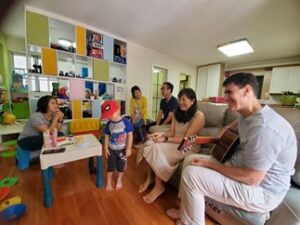 通過信仰教義的啟發,參與者幫助改善他們所屬的廣大社區的精神特性和社會狀況。我們不敢說巴哈伊社區所做的貢獻有多麼巨大,因為對於教育這樣龐大的事業,我們並沒有全部的答案,但對於我們已經學到的東西和接下來需要學習的東西,我們持有一些觀點和洞見。
通過信仰教義的啟發,參與者幫助改善他們所屬的廣大社區的精神特性和社會狀況。我們不敢說巴哈伊社區所做的貢獻有多麼巨大,因為對於教育這樣龐大的事業,我們並沒有全部的答案,但對於我們已經學到的東西和接下來需要學習的東西,我們持有一些觀點和洞見。
The concept of a learning community serves as the context for our educational endeavors for community building. In its approach to education, the Bahá’í community embraces all facets of education and this can be seen in at least two areas of community life. The School of the Nations serves one of these areas, functioning as an entity that seeks to foster the moral and intellectual development of children of all backgrounds in a sophisticated network that connects the local to the global, ranging from kindergarten, primary, secondary to the tertiary. In another area of community life, efforts are being made in a complex network of a different sort that distills global learning to address educational needs at the local level through courses and training that engage numerous individuals and groups in Macau to offer “spiritual education starting from the age of five, upwards to the age of junior youth (ages 11 – 14), and through into adulthood.” “The contribution made by Bahá’ís is distinguished by its focus on building capacity for service; it is an approach founded on faith in the ability of a population to become the protagonists of their own development.” Through the inspiration of the teachings of the Faith, participants help to improve the spiritual character and social conditions of the wider community to which they belong. The contribution of the Bahá’í community is modest. We do not have all the answers to something so vast as education, but we have some ideas as to what we have learned and what we need to learn next.
以下是我們的教育方法所依據的一些信念。
教育的目標是協助個人發展知識、素質、態度、技能和能力,使他們能夠掌握自己的成長,並成為建設世界文明的系統過程中積極、負責的參與者。
The following are some convictions that underpin our approach to education:
The goal of education is to assist individuals to develop the knowledge, qualities, attitudes, skills and abilities that enable them to take charge of their own growth, and become active, responsible participants in a systematic process of building a world civilization.
這樣設想的文明包括物質和精神兩個方面。為了以嚴謹的思想和清晰的思維集體前進,我們期待科學為研究物理現實提供系統的方法。至於這個文明得以建立的基礎,我們則須把注意力轉向宗教——一個培養基本素質的知識體系,“世界非常需要這些品質:團結、誠信、互助、合作、同胞之情、無私、堅持真理、責任感、渴望學習、無所不包的愛心。”這些品質,或一些人稱之為道德價值觀,不僅僅是社會進程中的基礎,它們是在每個人的精神現實中運作的內在力量的表達,如果教育要挖掘動機的根源並產生有意義的持久變化,就必須關注這些力量。
The civilization envisioned consists of both a material and a spiritual dimension. In order to advance collectively with intellectual rigor and clarity of thought, we look to Science for the provision of a systematic methodology for investigating physical reality. As to the very foundation that this civilization is to be built upon, we turn our attention to Religion – a system of knowledge that cultivates foundational qualities for which “the world stands in great need: unity, trustworthiness, mutual support, collaboration, fellow feeling, selflessness, commitment to truth, a sense of responsibility, a thirst to learn, the love of an all-embracing heart.”[vi] These qualities, or moral values as some may call them, are not mere constructs of social processes. Rather, they are expressions of the inner forces that operate in the spiritual reality of every human being, and education must concern itself with these forces if it is to tap the roots of motivation and produce meaningful and lasting change.
As to the very foundation that this civilization is to be built upon, we turn our attention to Religion – a system of knowledge that cultivates foundational qualities for which “the world stands in great need: unity, trustworthiness, mutual support, collaboration, fellow feeling, selflessness, commitment to truth, a sense of responsibility, a thirst to learn, the love of an all-embracing heart.”[vi] These qualities, or moral values as some may call them, are not mere constructs of social processes. Rather, they are expressions of the inner forces that operate in the spiritual reality of every human being, and education must concern itself with these forces if it is to tap the roots of motivation and produce meaningful and lasting change.
朋友們,我們今天聚集在這裡,是因為每個人都在以自己的方式思考澳門的社區建設問題。我們希望大家清楚,在這個過程中,教育可以發揮關鍵的作用。但是,不能把教育僅僅看作是少數人的責任。教育必須處理知識的擴展,同時考慮到知識的產生、應用和傳播。在這個學習型社區的背景下,在我們所採用的方法中,每個人自己都是接受教育的主角。每個人都是高貴的,都有能力接受教育和教育他人。因此,我們所設想的教育強調相互支援的合作方法,發展這些參與者的能力被視為“行走在服務的道路上”,明確地以改善其社區為重點。在這樣的道路上,當你學著自己走這條路時,會有人陪伴著你。如果你跌倒了,有人會在旁邊幫你一把。錯誤是可以接受的。漸漸地,你在承認自己的弱點和認識他人的長處方面獲得了必要的自信。曾經被你幫助的人,現在正在幫助其他人走這條路。這就是學習型社區中能力建設的本質。在這個社區中,無論“教”和“學”的人都是參與式教育過程中的一個組成部分。這就把我們帶到了教與學的方法問題上。教與學方法的一個層面是提高意識和行使意志。教與學方法是一個積極和有意識的過程。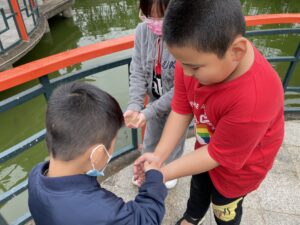 學生必須知道他或她正在接受教育時的這一要求,如果我們放棄了這個要求,就失去了創造一個能導致自由的教育過程的機會;犧牲了作為教育管理的原則——公正,並為操縱打開了大門。誠然,在幼年時期,學生對教育過程的性質知之甚少,但系統地提高這種認識是被稱為教師的人的一項基本任務。
學生必須知道他或她正在接受教育時的這一要求,如果我們放棄了這個要求,就失去了創造一個能導致自由的教育過程的機會;犧牲了作為教育管理的原則——公正,並為操縱打開了大門。誠然,在幼年時期,學生對教育過程的性質知之甚少,但系統地提高這種認識是被稱為教師的人的一項基本任務。
Friends, we are gathered here today because we, each in our own way, are thinking about community building in the context of Macau. We hope it is clear, that education has a pivotal role to play in this process. But education cannot be viewed only as the responsibility of a few. Education has to deal with the expansion of knowledge, taking into account its generation, application and diffusion. In this context of a learning community, in our approach, every one is a protagonist of their own education. Every human being is created noble and capable to educate and to be educated. Therefore, the educational approach we envision emphasizes a collaborative methodology of mutual support and the development of capacity of these protagonists is viewed in terms of “walking a path of service” with a definite focus on the betterment of their community. On such a path, someone accompanies you as you learn to walk the path yourself. If you fall, there is somebody close by to give you a hand. Mistakes are accepted. Gradually, you gain the required confidence in acknowledging your weaknesses and in recognizing the strengths in others. You who were once being assisted are now assisting other to walk the path. This is the nature of capacity building in the context of a learning community where the one “who teaches” and the one “who learns” are both an integral part of the educational process that is participatory. That brings us to the question of the method of teaching-learning. One of the dimensions of our methodology is the raising of consciousness and the exercise of will. 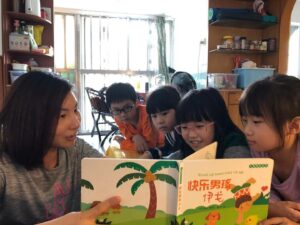 Teaching-learning is an active and conscious process. If we let go of the requirement that the student has to know that he or she is being educated, we lose the chance to create educational processes that lead to freedom; we sacrifice justice as a governing principle of education and open the door wide to manipulation. Admittedly, at an early age, the student will know little of the nature of the educational process, but systematically raising such an awareness is an essential task of one who is to be called a teacher.
Teaching-learning is an active and conscious process. If we let go of the requirement that the student has to know that he or she is being educated, we lose the chance to create educational processes that lead to freedom; we sacrifice justice as a governing principle of education and open the door wide to manipulation. Admittedly, at an early age, the student will know little of the nature of the educational process, but systematically raising such an awareness is an essential task of one who is to be called a teacher.
現在我們想對各位父母說幾句話。父母對養育子女負有主要責任。由於現在的教育高度正規化,可以理解的是,一些家長似乎認為教育子女是機構(如學校)的專屬責任;另一些家長則認為,為了維護兒童探索世界和自己理解世界的獨立性,家長的任何直接參與都是一種侵入。還有一些家長覺得自己沒有能力承擔這樣的任務。這些都是不正確的。阿博都-巴哈說過,”竭盡全力培養兒女,這是父母應盡的責任”。無論父母的教育水準如何,他們都處於塑造子女精神發展的關鍵位置。他們決不應低估自己塑造子女道德品質的能力。因為他們通過家庭環境施加了不可缺少的影響。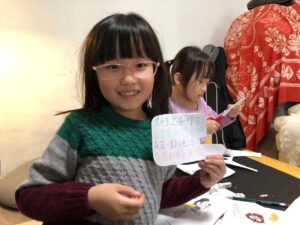 很難說孟子的母親為他的成長所做的一切不是教育。她可能感到的任何不足之處都被她的巨大犧牲和無條件的愛所補償。鑒於孟子在學習上的疏忽,孟子的母親以一種需要紀律的愛和讓孩子習慣於吃苦的勇氣來回應,而不是放縱他的奇思妙想或完全任其自由發揮。我們相信,所有的父母都渴望能做到這一點。
很難說孟子的母親為他的成長所做的一切不是教育。她可能感到的任何不足之處都被她的巨大犧牲和無條件的愛所補償。鑒於孟子在學習上的疏忽,孟子的母親以一種需要紀律的愛和讓孩子習慣於吃苦的勇氣來回應,而不是放縱他的奇思妙想或完全任其自由發揮。我們相信,所有的父母都渴望能做到這一點。
And now we wish to address a few words to parents, who bear the primary responsibility for the upbringing of their children. Since education is now highly formalized, it is understandable that some parents appear to think that the education of their children is the exclusive responsibility of institutions (like schools); others believe that in order to preserve the independence of children to investigate the world and make sense of it for themselves, any direct involvement of parents is a form of intrusion. Still others feel inadequate to take on such a task. None of this is correct. ‘Abdu’l-Bahá has said that “it is enjoined upon the father and mother, as a duty, to strive with all effort to train the daughter and the son.” Independent of the level of their education, parents are in a critical position to shape the spiritual development of their children. They should not ever underestimate their capacity to mold their children’s moral character.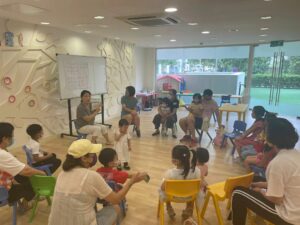 For they exercise indispensable influence through the home environment.[vii] It is hard to argue that what Mencius’ Mother did for his upbringing is not education. Any inadequacy she might have felt is compensated by her large degree of sacrifice and her unconditioned love. In view of his negligence in study, Mencius’ Mother responded with the kind of love that demands discipline, the courage to accustom her child to hardship, and not to indulge his whims or leave him entirely to his own devices. These, we are sure, all parents can aspire to do.
For they exercise indispensable influence through the home environment.[vii] It is hard to argue that what Mencius’ Mother did for his upbringing is not education. Any inadequacy she might have felt is compensated by her large degree of sacrifice and her unconditioned love. In view of his negligence in study, Mencius’ Mother responded with the kind of love that demands discipline, the courage to accustom her child to hardship, and not to indulge his whims or leave him entirely to his own devices. These, we are sure, all parents can aspire to do.
然而,如父母要教育他們的孩子在個人和集體生活中成為自主學習的年輕成年人,反過來又可以為他人和整個社會的福祉做出貢獻,要達到這樣殷切的願望,父母需要付出更多。我們需要迫切地重新認識教育,使家庭恢復其作為教育單位的應有地位,使每個成員的意識提高到與人類年齡相稱的水準。讓父母參與到能力建設的過程中來,這不是一個我們可以在此刻進行全面討論的領域。這顯然是一個我們還有很多需要學習(或重新學習)的領域。幸運的是,我們認為我們已經知道該從哪裡開始。
However, in order to educate their children to become, as young adults, autonomous individuals engaged in learning—both personal and collective—who in turn can contribute to the well being of others and society as a whole, parents need something more if they are to fulfil their ardent wish. There is an urgent need to reconceptualize education in such a way that the family is returned to its rightful place as an educational unit in which each member’s consciousness is raised to a level befitting the coming of age of the human species. Engaging parents in the process of capacity building is not an area about which we can enter into satisfactory discussion at this point. This is clearly an area in which we still have much to learn. Fortunately, we think we have an idea where to begin.
澳門巴哈伊社團正在推動社會上呈現的教育工作,有三個獨特但相互關聯的方面:其一對兒童進行靈性教育的課程,在這些課程中,他們也對人類各種觀點的基本統一性有了深刻的認識;其二是幫助青少年度過人生的關鍵階段,並抵禦對他們而言特別具有腐蝕性作用的團體的力量;第三是青年和成人參與者在學習小組中思考存在的精神本質,並培養為社區和社會服務的能力。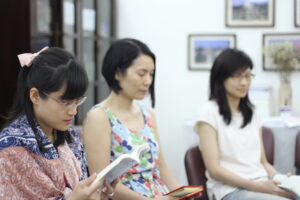 通往這些學習空間的大門是敞開的。今天,在澳門社區出現了幾十個人——母親、父親、兄弟姐妹、年輕人和老年人——在不同的鄰里和其他社區設置的正式和非正式場合擔任輔導員、青少年激勵者或兒童班老師。
通往這些學習空間的大門是敞開的。今天,在澳門社區出現了幾十個人——母親、父親、兄弟姐妹、年輕人和老年人——在不同的鄰里和其他社區設置的正式和非正式場合擔任輔導員、青少年激勵者或兒童班老師。
There are three distinct yet inter-related aspects of the educational endeavors that are emerging in society that are being promoted by the Macau Bahá’í community. These include classes for the spiritual education of children in which they also develop a deep appreciation for the fundamental unity of the various human outlooks; groups that assist junior young to navigate a crucial stage of their lives and to withstand the corrosive forces that especially target them; and circles of study wherein youth and adult participants reflect on the spiritual nature of existence and build capacity for service to the community and society.[viii] The doors to these learning spaces are wide open. Today, there are scores of people emerging in the Macau community—mothers, fathers, brothers and sisters, young and old—serving as tutors, animators, or children’s class teachers at various neighborhood and other community settings both formal and informal.
擔任兒童班教師的人,特別是家長,對他們所教的學生的廣泛教育發展有著濃厚的興趣。向社區提供的兒童班是一個為期六年的計畫,重點是5-11歲的兒童。目前提供的是前4年的學習材料,並在以後的階段逐步引入補充的材料。在一些地方,還為5歲以下的兒童開設了課程。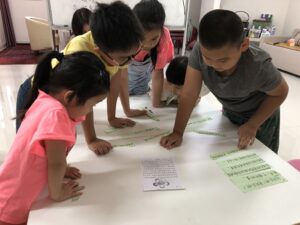 兒童班一年級的目標是發展有助於完善人格的精神品質;而二年級則在這些課程的基礎上,培養體現上一年所探討的這些內在品質的習慣和行為模式。隨後的年級則側重於知識方面及其對完善人格的影響。
兒童班一年級的目標是發展有助於完善人格的精神品質;而二年級則在這些課程的基礎上,培養體現上一年所探討的這些內在品質的習慣和行為模式。隨後的年級則側重於知識方面及其對完善人格的影響。
Those serving as children’s class teachers, especially parents, take a keen interest in the broad educational development of those they teach. The children’s classes offered to the community is a six-year program with a focus on children ages 5 – 11. At the moment, materials for study for the first 4 years are made available with an additional one gradually introduced at a later stage.  In some localities, classes are also conducted for those younger than 5. The aim of Grade 1 of the children’s classes is the development of spiritual qualities that contribute to the refinement of character while Grade 2 builds on these lessons by fostering the habits and pattern of conduct that give expression to these inner qualities explored in the previous year. The subsequent grades focus on the issues of knowledge and its implications for the refinement of character.
In some localities, classes are also conducted for those younger than 5. The aim of Grade 1 of the children’s classes is the development of spiritual qualities that contribute to the refinement of character while Grade 2 builds on these lessons by fostering the habits and pattern of conduct that give expression to these inner qualities explored in the previous year. The subsequent grades focus on the issues of knowledge and its implications for the refinement of character.
道德賦能課程是專門為社區中被稱為青少年的年輕人設計的,他們的年齡在11至14歲之間。他們是一個具有特殊需求的群體,因為他們正處於童年和青年之間,體內正在發生許多變化。必須創造性地注意讓他們參與到活動計畫中來,以吸引他們的興趣,塑造他們的服務能力,並讓他們參與到比起年長的青年的社交互動中。在這種活動中,運用各種形式的藝術可以發揮巨大的價值。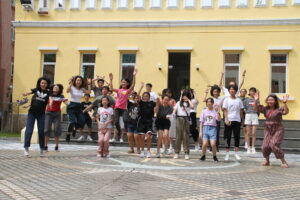 因此,該計畫是以青年團體的形式進行的,在那裡,這些青少年們得到了比他們大幾歲的青年激勵者的支持。
因此,該計畫是以青年團體的形式進行的,在那裡,這些青少年們得到了比他們大幾歲的青年激勵者的支持。
A moral empowerment program is designed specifically for the young ones in the community known as junior youth, who fall between the ages of, say, 11 and 14. They represent a special group with special needs as they are somewhat in between childhood and youth when many changes are occurring within them. Creative attention must be devoted to involving them in programs of activity that will engage their interests, mold their capacities for teaching and service, and involve them in social interaction with older youth. The employment of the arts in various forms can be of great value in such activity. Thus, the program is carried out in the form of a youth group where these junior youth are supported by animators who are young people a few years their senior.
擔任《學習小組》活動輔導員的人,自然關注那些接近或進入成年的人——無論是女孩還是男孩——能在多大程度上獲得並受益於多種教育。正是在這些學習小組內,青年和成人參加了幫助他們反思存在的精神本質和建立為社區和社會服務的能力的課程。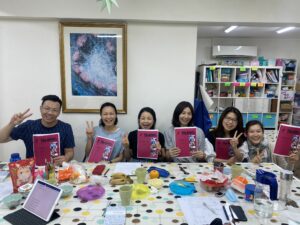 正是通過這個主幹的序列課程,兒童班的老師、青少年團的激勵者和學習小組的輔導員得到了培訓。對此,在座的一些人有直接的個人經驗。我們希望更多的人加入我們的事業中。
正是通過這個主幹的序列課程,兒童班的老師、青少年團的激勵者和學習小組的輔導員得到了培訓。對此,在座的一些人有直接的個人經驗。我們希望更多的人加入我們的事業中。
Those serving as tutors for the activity known as “study circles” are naturally concerned with the extent to which those approaching or entering adulthood—girls and boys alike—can access and benefit from education of many kinds. It is within these circles of study that youth and adults participate in courses that help them reflect on the spiritual nature of existence and build capacity for service to the community and society. It is through this main sequence of courses that children’s class teachers, animators of junior youth groups and tutors of study circles are trained. With this, some of you in the audience have direct and personal experiences. We hope more will join us in this endeavor.
“個人和家庭參與這個過程的一個自然結果是對各種形式的教育的重要性有了更多的認識”。不管是在學校還是在家裡,我們所描述的教育工作的核心是一個高貴對話的過程。這些對話探討了一些問題和主題,如為人父母、兒童早期教育、青年的智力和性格發展、終身學習、發展的物質和精神維度、為人類服務的重要性等,僅舉幾例。無論其形式如何,我們提請你們考慮的對話不是智力活動,而是在為人類服務的過程中讓思想具體地以行動表達出來。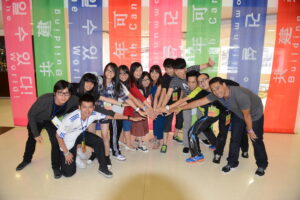 這種對話歡迎來自完全不同背景的人的參與,以確保全民參與。雖然澳門巴哈伊團體所推動的教育進程顯然對建立這種對話仍處於初始階段,但是已經作出了一些貢獻。
這種對話歡迎來自完全不同背景的人的參與,以確保全民參與。雖然澳門巴哈伊團體所推動的教育進程顯然對建立這種對話仍處於初始階段,但是已經作出了一些貢獻。
“A natural outcome of the participation of individuals and families in this process has been an increased consciousness of the importance of education in all its forms.”[ix] Regardless of whether it is in a school or at home, at the heart of the educational efforts we have been describing lies a process of elevated conversation. These conversations explore questions and themes such as parenting, early childhood education, the intellectual and character development of youth, lifelong learning, material and spiritual aspects of development, the importance service to humanity, to name just a few. Regardless of its form, the conversations we are bringing to your consideration are not solely an intellectual exercise. Ideas find concrete expression in service to humanity. Such conversations welcome the participation of people coming from totally different backgrounds ensuring universal participation. Although still in its initial stages, the educational process promoted by the Bahá’í community in Macau is clearly making some contributions to the establishment of such a conversation.
在我們耗盡一生去經歷、探尋和發現這個浩瀚的教育領域的努力過程中,我們在家庭中找到了希望的燈塔;我們在每個孩子身上看到了一個充滿了不可估量的寶石礦山,每個母親都是這個孩子的第一個教育者,每個父親都是紀律的典範。在適當的關注下,這個孩子將成長為一個新文明的自覺建設者。作為教育者,包括父母、教師,乃至社會的所有成員,我們需要承擔起責任,確保年輕人的意識得到提高,崇高的願望得以形成。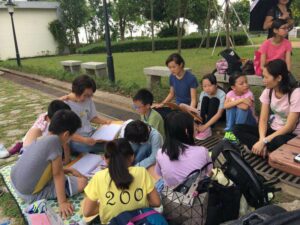 那麼,從這個角度來看,一個社區以及最終一個國家的長期發展,從一代到另一代,在很大程度上取決於利用青年時期特有的熱情和激情,幫助他們在自己身上看到創造新世界的潛力,並將他們的靈感帶給世界人民,為集體社會進步承擔責任。
那麼,從這個角度來看,一個社區以及最終一個國家的長期發展,從一代到另一代,在很大程度上取決於利用青年時期特有的熱情和激情,幫助他們在自己身上看到創造新世界的潛力,並將他們的靈感帶給世界人民,為集體社會進步承擔責任。
In the vast universe of education and the lifelong efforts to traverse it, we find within the family a beacon of hope; we see in every child a mine full of gems of inestimable value, in every mother the first educator of this child and in every father a model of discipline. With proper attention, this child will grow up as a conscious builder of a new civilization. As educators, including, parents, teachers and indeed all members of the community—we need to take responsibility for ensuring consciousness is raised and noble aspirations are formed in young people. 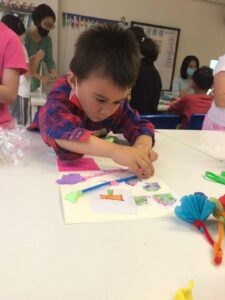 From this perspective, then, the long-term development of a community and, ultimately, of a nation, from generation to generation, depends to a large degree on the effort to draw on the zeal and enthusiasm characteristic of the period of youth and assists them to see in themselves the potential for creating the world anew and to bring their inspirations to the people of the world to assume responsibility for collective social progress.[x]
From this perspective, then, the long-term development of a community and, ultimately, of a nation, from generation to generation, depends to a large degree on the effort to draw on the zeal and enthusiasm characteristic of the period of youth and assists them to see in themselves the potential for creating the world anew and to bring their inspirations to the people of the world to assume responsibility for collective social progress.[x]
我們希望,我們已經讓你理解到,每個人都可以在這種教育和社區建設的努力中發揮作用。在這個社區建設嘉年華期間,有各種類型的聊天室,供大家進一步交流。我們誠摯地邀請您的參與,並展開對話。歡迎所有人來一起聊聊。
We hope that we have convinced you that everyone has a role in this effort of education and community building. There are chat rooms of various kinds that are set up during this community building festival for further conversations. You are cordially invited to enter there in and start a conversation. All are welcome. Let’s chat.
謝謝大家。
Thank you.
[i] https://www.worldhistory.org/Mencius/
[ii] Ibid
[iii] Ridvan 2000 Message
[iv] Out of Our Minds, Chapter 10
[v] Ibid
[vi] 30 Dec 2021 Para #39
[vii] Ridvan 2000 Message
[viii] 27 December 2017 letter to an individual
[ix] 30 Dec 2021 para #25
[x] Ibid.
大家下午好。
Good afternoon.
很榮幸有機會與您分享關於教育在建設充滿活力社區中所起的作用,並提供一些想法。當然,對於教育意味著什麼,有許多不同的觀點。因此,我們不打算在此為它作出定義。事實上,在我們所有人的內心深處和在我們的文化中,也有一股強烈的萌動力促使我們關注教育,特別是我們孩子的教育。這就是為什麼我們創建了學校等機構,以實現這一個目的——這個目的不僅服務於我們的個人需求,而且服務於我們的家庭。簡而言之,我們的社區和我們的社會——本身就是在促进文明。稍後我們再來談這個問題,現在讓我們從一個故事開始我們今天的探索。

It is such an honor to be given this opportunity to share with you some thoughts on the role that education plays in building a vibrant community. Surely, there are many different perspectives on what education means. So, we are not going to attempt to define it. Yet deep down in all of us, in fact in our culture as well, there is a strong stirring that prompts us to focus on education, especially the education of our children. That is why we create institutions, such as schools, to fulfill this very purpose—a purpose that serves not only our individual needs, but that of our family, our community, our society—in short, civilization itself. More on this later, let us start our exploration today with a story.
從前有一個男孩和他的家人住在一個墓地附近。男孩的母親注意到她的兒子開始效仿殯葬業者和專業送葬者的行為,因此她決定搬家了。於是,他們搬到城裡。男孩開始模仿附近商人的活動,模仿當地屠宰場的聲音。這母親也認為這不適合她的孩子。
於是,他們又搬到了一所學校附近的小房子裡。在這裡,她的孩子開始模仿老師的舉止、言語和紀律。她對所目睹的一切感到高興,她確信自己終於找到了適合孩子成長的地方。他的孩子也不負所望。他成為一名學者,對中國的哲學和文化影響深遠。

Once there was a boy who lived with his family near a graveyard. Noticing that her son was beginning to emulate the behavior of the undertaker and professional mourners, the boy’s mother decided that the time had come for the family to move. So, they moved into town where the boy began to mimic the activities of the nearby merchants and imitate the sounds from the local slaughterhouse. This, too, she found unworthy of her son. So, they moved again to a small home near a school. Here, her son began to imitate the behavior, speech, and discipline of the teachers. Delighted by what she saw, she was convinced that she had finally found the right place for her boy to grow. And he did. He became a scholar that changed forever the philosophical and cultural landscape of China.[i]
眾所周知,這就是《孟母三遷》的故事。這個故事從廣義上表明了教育的概念。它讓我們瞭解到一位母親的智慧,她在教育子女方面激勵著成千上萬的人。它幫助我們了解教育的真正起點。
This, as many of us will know, is the well-known story of Mencius’s Mother relocating her home three times to improve her son’s education [孟母三迁 (Mèngmǔ sān qiān)]. This story is indicative of the very conception of education in a broad way. It provides insights into the wisdom of a mother who inspired thousands like her in the education of their children. It helps us to understand where education really begins.
家庭是文明的基本單位,這是一個在許多文化中普遍存在的概念。它是建立我們的世界觀和道德人格基礎的地方。孟子的母親選擇了一個靠近學校的家,她大概很瞭解“先天”與“後天”之間的動態關係。創造一個兒童可以茁壯成長的環境,意味著兩種教育者——教師(正式)和家長(非正式)之間的合作和相互支持的關係——在教育兒童的過程中,他們各自在自己的範圍內發揮著影響力。我希望在座的每一位都仍有興趣再多聽一個故事,因為孟子的童年故事並沒有就此結束。
That the family is the basic unit of civilization is a concept that is prevalent in many cultures. It is a place where the foundation of our world view and moral characters is built. Having chosen a home near a school, Mencius’ Mother probably has understood well the dynamic relations between ‘nature’ and ‘nurture’. Creating an environment in which children can flourish implies the collaborative and mutually supportive relationship between two kind of educators—the teachers (formal) and the parents (informal) —each exerting their own influences within their own sphere in educating the child. We hope you are in the mood for at least one more story, if you are not, please bear with us as the story of Mencius’ childhood did not end there.
這個故事就是孟母斷機教子的故事。孟子小時候厭倦學習。有一次她母親發現孟子忽視了他的學業,因此她將一直在織的布裁掉了一半。孟子對這種行為感到震驚,但他的母親告訴他,這不過是和他忽視學業所做的一样,沒有完成的功課,是一文不值的。孟子吸取了教訓,因此發奮圖强。
Another little anecdote further exemplifying his mother’s virtues tells of a time when she found he was neglecting his studies and so cut in half the cloth she had been steadily weaving. Mencius was shocked at this behavior, but his mother told him it was no more than what he, himself, was doing by not finishing his schoolwork and so rendering it worthless. Mencius learned the lesson and returned to his studies.[ii]
通過孟母的故事,我們希望你能看我們希望帶出一點︰就是孩子從家庭得到的指導和支持是教育這張拼圖的關鍵部分。像學校這樣的教育機構只是對教育這張拼圖的一個部分做出貢獻。它不能單獨完成。孩子從家庭得到的支持是至關重要的;它是開始和完成拼圖的第一塊和最後一塊關鍵的材料。正是在家庭中,我們的習慣和性格的基礎才得以建立。在那裡,大家庭和社區為我們的成長提供了一個肥沃的棲息地。隨著我們的成熟,我們通過行走服務之路,為改善我們的社區作出貢獻。正是在這種方式下,生命的迴圈才得以完成。

These stories of the critical role of Mencius’ Mother in his education make us wonder where we got the idea of checking our children’s homework from… We hope you see where we are going with this. The guidance and support a child receives from the family is a crucial piece of the educational puzzle. An educational institution such as a school contributes only a piece to the puzzle that is education. It cannot do it alone. The support a child receives from the family is essential; it is the first and the last crucial piece that begins and completes the puzzle. It is within the family that the foundation of our habits and characters is build. From there, the extended family and the community provide a rich habitat within which we grow. As we mature, we contribute back to the betterment of our community by walking a path of service. It is in this way that the circle of life finds completion.
教育有雙重目的——完善學生的性格和發展他們為社會進步作出貢獻的能力。
Education serves a dual purpose—the refinement of the character of the student and the development of their capacity to contribute to the progress of society.
過去,兒童是由整個社區撫養的。他們生活的方方面面都是由周圍環境塑造的。“兒童乃是社區的最珍貴寶藏,因為他們是未來的希望和保證。他們孕育了未來社會的特徵,而這特徵在很大程度上取決於構成社區的成年人對兒童所做或未做的事情。”教育不僅僅是兒童的權利。它也是他們周圍成年人的責任。在任何社會中,有三個明顯的實體在運作–個人、社區和機構。這些實體中的每一個都要發揮教育的作用。不幸的是,近幾十年來,教育的責任幾乎只放在了作為 “特定種類的正式機構 “的學校身上。這種有點現代的、專門的定義剝奪了我們作為一個人類社會集體進行學習和教學的豐富遺產。我們需要一種新的方式來看待教育,以及學校如何融入這一概念。在我們的概念中, “學校” 除了是一個機構外,其存在本身就是一個“學習型社區,無論是兒童還是成人,公共還是私人,義務還是自願”。

It used to be that children were raised by the entire community. Indeed every aspect of their lives is shaped by their surroundings. “Children are the most precious treasure a community can possess, for in them are the promise and guarantee of the future. They bear the seeds of the character of future society which is largely shaped by what the adults constituting the community do or fail to do with respect to children.”[iii] Education is not just a right of children. It is also a responsibility of the adults and community around them. There are three obvious entities that operate in any society – the individual, the community and the institutions. Each of these entities has an educational role to play. Unfortunately, in recent decades, the responsibility to educate has been placed almost solely on schools as “particular sorts of formal institutions.”[iv] This somewhat modern, specialized definition robs us of our rich heritage of collective learning and teaching as a human society. We need a new, broader way to look at education and how a school fits into this conception. The ‘school’ in our conception, besides being an institution, is by its very existence a “learning community, whether for children or adults, public or private, compulsory or voluntary.”[v]
學習型社區的概念是我們為社區建設所做的教育努力所產生的情形。其中,巴哈伊社區包含了教育的所有面向,這至少可以在社區生活的兩個領域看到。聯國學校為其中一個領域服務,作為一個實體,在一個連接當地和全球的多元網路中,從幼稚園、小學、中學到大學,努力培養各種背景的兒童的道德和智力發展。在社區生活的另一個領域,正在努力建立一個不同類型的多元網路,通過課程和培訓將全球的學習經驗提煉出來,以滿足當地的教育需求,讓澳門的眾多個人和團體參與進來,提供 “從5歲開始,一直到少年(11-14歲),直至成年的精神教育”。”巴哈伊信仰的追隨者們所做貢獻的獨特之處是專注於發展服務的能力,這種方法建立在對民眾有能力成為自身發展主角的信心上。通過信仰教義的啟發,參與者幫助改善他們所屬的廣大社區的精神特性和社會狀況。我們不敢說巴哈伊社區所做的貢獻有多麼巨大,因為對於教育這樣龐大的事業,我們並沒有全部的答案,但對於我們已經學到的東西和接下來需要學習的東西,我們持有一些觀點和洞見。

The concept of a learning community serves as the context for our educational endeavors for community building. In its approach to education, the Bahá’í community embraces all facets of education and this can be seen in at least two areas of community life. The School of the Nations serves one of these areas, functioning as an entity that seeks to foster the moral and intellectual development of children of all backgrounds in a sophisticated network that connects the local to the global, ranging from kindergarten, primary, secondary to the tertiary. In another area of community life, efforts are being made in a complex network of a different sort that distills global learning to address educational needs at the local level through courses and training that engage numerous individuals and groups in Macau to offer “spiritual education starting from the age of five, upwards to the age of junior youth (ages 11 – 14), and through into adulthood.” “The contribution made by Bahá’ís is distinguished by its focus on building capacity for service; it is an approach founded on faith in the ability of a population to become the protagonists of their own development.” Through the inspiration of the teachings of the Faith, participants help to improve the spiritual character and social conditions of the wider community to which they belong. The contribution of the Bahá’í community is modest. We do not have all the answers to something so vast as education, but we have some ideas as to what we have learned and what we need to learn next.
以下是我們的教育方法所依據的一些信念。
教育的目標是協助個人發展知識、素質、態度、技能和能力,使他們能夠掌握自己的成長,並成為建設世界文明的系統過程中積極、負責的參與者。
The following are some convictions that underpin our approach to education:
The goal of education is to assist individuals to develop the knowledge, qualities, attitudes, skills and abilities that enable them to take charge of their own growth, and become active, responsible participants in a systematic process of building a world civilization.
這樣設想的文明包括物質和精神兩個方面。為了以嚴謹的思想和清晰的思維集體前進,我們期待科學為研究物理現實提供系統的方法。至於這個文明得以建立的基礎,我們則須把注意力轉向宗教——一個培養基本素質的知識體系,“世界非常需要這些品質:團結、誠信、互助、合作、同胞之情、無私、堅持真理、責任感、渴望學習、無所不包的愛心。”這些品質,或一些人稱之為道德價值觀,不僅僅是社會進程中的基礎,它們是在每個人的精神現實中運作的內在力量的表達,如果教育要挖掘動機的根源並產生有意義的持久變化,就必須關注這些力量。

The civilization envisioned consists of both a material and a spiritual dimension. In order to advance collectively with intellectual rigor and clarity of thought, we look to Science for the provision of a systematic methodology for investigating physical reality. As to the very foundation that this civilization is to be built upon, we turn our attention to Religion – a system of knowledge that cultivates foundational qualities for which “the world stands in great need: unity, trustworthiness, mutual support, collaboration, fellow feeling, selflessness, commitment to truth, a sense of responsibility, a thirst to learn, the love of an all-embracing heart.”[vi] These qualities, or moral values as some may call them, are not mere constructs of social processes. Rather, they are expressions of the inner forces that operate in the spiritual reality of every human being, and education must concern itself with these forces if it is to tap the roots of motivation and produce meaningful and lasting change.
朋友們,我們今天聚集在這裡,是因為每個人都在以自己的方式思考澳門的社區建設問題。我們希望大家清楚,在這個過程中,教育可以發揮關鍵的作用。但是,不能把教育僅僅看作是少數人的責任。教育必須處理知識的擴展,同時考慮到知識的產生、應用和傳播。在這個學習型社區的背景下,在我們所採用的方法中,每個人自己都是接受教育的主角。每個人都是高貴的,都有能力接受教育和教育他人。因此,我們所設想的教育強調相互支援的合作方法,發展這些參與者的能力被視為“行走在服務的道路上”,明確地以改善其社區為重點。在這樣的道路上,當你學著自己走這條路時,會有人陪伴著你。如果你跌倒了,有人會在旁邊幫你一把。錯誤是可以接受的。漸漸地,你在承認自己的弱點和認識他人的長處方面獲得了必要的自信。曾經被你幫助的人,現在正在幫助其他人走這條路。這就是學習型社區中能力建設的本質。在這個社區中,無論“教”和“學”的人都是參與式教育過程中的一個組成部分。這就把我們帶到了教與學的方法問題上。教與學方法的一個層面是提高意識和行使意志。教與學方法是一個積極和有意識的過程。學生必須知道他或她正在接受教育時的這一要求,如果我們放棄了這個要求,就失去了創造一個能導致自由的教育過程的機會;犧牲了作為教育管理的原則——公正,並為操縱打開了大門。誠然,在幼年時期,學生對教育過程的性質知之甚少,但系統地提高這種認識是被稱為教師的人的一項基本任務。

Friends, we are gathered here today because we, each in our own way, are thinking about community building in the context of Macau. We hope it is clear, that education has a pivotal role to play in this process. But education cannot be viewed only as the responsibility of a few. Education has to deal with the expansion of knowledge, taking into account its generation, application and diffusion. In this context of a learning community, in our approach, every one is a protagonist of their own education. Every human being is created noble and capable to educate and to be educated. Therefore, the educational approach we envision emphasizes a collaborative methodology of mutual support and the development of capacity of these protagonists is viewed in terms of “walking a path of service” with a definite focus on the betterment of their community. On such a path, someone accompanies you as you learn to walk the path yourself. If you fall, there is somebody close by to give you a hand. Mistakes are accepted. Gradually, you gain the required confidence in acknowledging your weaknesses and in recognizing the strengths in others. You who were once being assisted are now assisting other to walk the path. This is the nature of capacity building in the context of a learning community where the one “who teaches” and the one “who learns” are both an integral part of the educational process that is participatory. That brings us to the question of the method of teaching-learning. One of the dimensions of our methodology is the raising of consciousness and the exercise of will.  Teaching-learning is an active and conscious process. If we let go of the requirement that the student has to know that he or she is being educated, we lose the chance to create educational processes that lead to freedom; we sacrifice justice as a governing principle of education and open the door wide to manipulation. Admittedly, at an early age, the student will know little of the nature of the educational process, but systematically raising such an awareness is an essential task of one who is to be called a teacher.
Teaching-learning is an active and conscious process. If we let go of the requirement that the student has to know that he or she is being educated, we lose the chance to create educational processes that lead to freedom; we sacrifice justice as a governing principle of education and open the door wide to manipulation. Admittedly, at an early age, the student will know little of the nature of the educational process, but systematically raising such an awareness is an essential task of one who is to be called a teacher.
現在我們想對各位父母說幾句話。父母對養育子女負有主要責任。由於現在的教育高度正規化,可以理解的是,一些家長似乎認為教育子女是機構(如學校)的專屬責任;另一些家長則認為,為了維護兒童探索世界和自己理解世界的獨立性,家長的任何直接參與都是一種侵入。還有一些家長覺得自己沒有能力承擔這樣的任務。這些都是不正確的。阿博都-巴哈說過,”竭盡全力培養兒女,這是父母應盡的責任”。無論父母的教育水準如何,他們都處於塑造子女精神發展的關鍵位置。他們決不應低估自己塑造子女道德品質的能力。因為他們通過家庭環境施加了不可缺少的影響。很難說孟子的母親為他的成長所做的一切不是教育。她可能感到的任何不足之處都被她的巨大犧牲和無條件的愛所補償。鑒於孟子在學習上的疏忽,孟子的母親以一種需要紀律的愛和讓孩子習慣於吃苦的勇氣來回應,而不是放縱他的奇思妙想或完全任其自由發揮。我們相信,所有的父母都渴望能做到這一點。

And now we wish to address a few words to parents, who bear the primary responsibility for the upbringing of their children. Since education is now highly formalized, it is understandable that some parents appear to think that the education of their children is the exclusive responsibility of institutions (like schools); others believe that in order to preserve the independence of children to investigate the world and make sense of it for themselves, any direct involvement of parents is a form of intrusion. Still others feel inadequate to take on such a task. None of this is correct. ‘Abdu’l-Bahá has said that “it is enjoined upon the father and mother, as a duty, to strive with all effort to train the daughter and the son.” Independent of the level of their education, parents are in a critical position to shape the spiritual development of their children. They should not ever underestimate their capacity to mold their children’s moral character.For they exercise indispensable influence through the home environment.[vii] It is hard to argue that what Mencius’ Mother did for his upbringing is not education. Any inadequacy she might have felt is compensated by her large degree of sacrifice and her unconditioned love. In view of his negligence in study, Mencius’ Mother responded with the kind of love that demands discipline, the courage to accustom her child to hardship, and not to indulge his whims or leave him entirely to his own devices. These, we are sure, all parents can aspire to do.

然而,如父母要教育他們的孩子在個人和集體生活中成為自主學習的年輕成年人,反過來又可以為他人和整個社會的福祉做出貢獻,要達到這樣殷切的願望,父母需要付出更多。我們需要迫切地重新認識教育,使家庭恢復其作為教育單位的應有地位,使每個成員的意識提高到與人類年齡相稱的水準。讓父母參與到能力建設的過程中來,這不是一個我們可以在此刻進行全面討論的領域。這顯然是一個我們還有很多需要學習(或重新學習)的領域。幸運的是,我們認為我們已經知道該從哪裡開始。
However, in order to educate their children to become, as young adults, autonomous individuals engaged in learning—both personal and collective—who in turn can contribute to the well being of others and society as a whole, parents need something more if they are to fulfil their ardent wish. There is an urgent need to reconceptualize education in such a way that the family is returned to its rightful place as an educational unit in which each member’s consciousness is raised to a level befitting the coming of age of the human species. Engaging parents in the process of capacity building is not an area about which we can enter into satisfactory discussion at this point. This is clearly an area in which we still have much to learn. Fortunately, we think we have an idea where to begin.
澳門巴哈伊社團正在推動社會上呈現的教育工作,有三個獨特但相互關聯的方面:其一對兒童進行靈性教育的課程,在這些課程中,他們也對人類各種觀點的基本統一性有了深刻的認識;其二是幫助青少年度過人生的關鍵階段,並抵禦對他們而言特別具有腐蝕性作用的團體的力量;第三是青年和成人參與者在學習小組中思考存在的精神本質,並培養為社區和社會服務的能力。通往這些學習空間的大門是敞開的。今天,在澳門社區出現了幾十個人——母親、父親、兄弟姐妹、年輕人和老年人——在不同的鄰里和其他社區設置的正式和非正式場合擔任輔導員、青少年激勵者或兒童班老師。

There are three distinct yet inter-related aspects of the educational endeavors that are emerging in society that are being promoted by the Macau Bahá’í community. These include classes for the spiritual education of children in which they also develop a deep appreciation for the fundamental unity of the various human outlooks; groups that assist junior young to navigate a crucial stage of their lives and to withstand the corrosive forces that especially target them; and circles of study wherein youth and adult participants reflect on the spiritual nature of existence and build capacity for service to the community and society.[viii] The doors to these learning spaces are wide open. Today, there are scores of people emerging in the Macau community—mothers, fathers, brothers and sisters, young and old—serving as tutors, animators, or children’s class teachers at various neighborhood and other community settings both formal and informal.
擔任兒童班教師的人,特別是家長,對他們所教的學生的廣泛教育發展有著濃厚的興趣。向社區提供的兒童班是一個為期六年的計畫,重點是5-11歲的兒童。目前提供的是前4年的學習材料,並在以後的階段逐步引入補充的材料。在一些地方,還為5歲以下的兒童開設了課程。兒童班一年級的目標是發展有助於完善人格的精神品質;而二年級則在這些課程的基礎上,培養體現上一年所探討的這些內在品質的習慣和行為模式。隨後的年級則側重於知識方面及其對完善人格的影響。

Those serving as children’s class teachers, especially parents, take a keen interest in the broad educational development of those they teach. The children’s classes offered to the community is a six-year program with a focus on children ages 5 – 11. At the moment, materials for study for the first 4 years are made available with an additional one gradually introduced at a later stage.In some localities, classes are also conducted for those younger than 5. The aim of Grade 1 of the children’s classes is the development of spiritual qualities that contribute to the refinement of character while Grade 2 builds on these lessons by fostering the habits and pattern of conduct that give expression to these inner qualities explored in the previous year. The subsequent grades focus on the issues of knowledge and its implications for the refinement of character.

道德賦能課程是專門為社區中被稱為青少年的年輕人設計的,他們的年齡在11至14歲之間。他們是一個具有特殊需求的群體,因為他們正處於童年和青年之間,體內正在發生許多變化。必須創造性地注意讓他們參與到活動計畫中來,以吸引他們的興趣,塑造他們的服務能力,並讓他們參與到比起年長的青年的社交互動中。在這種活動中,運用各種形式的藝術可以發揮巨大的價值。因此,該計畫是以青年團體的形式進行的,在那裡,這些青少年們得到了比他們大幾歲的青年激勵者的支持。

A moral empowerment program is designed specifically for the young ones in the community known as junior youth, who fall between the ages of, say, 11 and 14. They represent a special group with special needs as they are somewhat in between childhood and youth when many changes are occurring within them. Creative attention must be devoted to involving them in programs of activity that will engage their interests, mold their capacities for teaching and service, and involve them in social interaction with older youth. The employment of the arts in various forms can be of great value in such activity. Thus, the program is carried out in the form of a youth group where these junior youth are supported by animators who are young people a few years their senior.
擔任《學習小組》活動輔導員的人,自然關注那些接近或進入成年的人——無論是女孩還是男孩——能在多大程度上獲得並受益於多種教育。正是在這些學習小組內,青年和成人參加了幫助他們反思存在的精神本質和建立為社區和社會服務的能力的課程。正是通過這個主幹的序列課程,兒童班的老師、青少年團的激勵者和學習小組的輔導員得到了培訓。對此,在座的一些人有直接的個人經驗。我們希望更多的人加入我們的事業中。

Those serving as tutors for the activity known as “study circles” are naturally concerned with the extent to which those approaching or entering adulthood—girls and boys alike—can access and benefit from education of many kinds. It is within these circles of study that youth and adults participate in courses that help them reflect on the spiritual nature of existence and build capacity for service to the community and society. It is through this main sequence of courses that children’s class teachers, animators of junior youth groups and tutors of study circles are trained. With this, some of you in the audience have direct and personal experiences. We hope more will join us in this endeavor.
“個人和家庭參與這個過程的一個自然結果是對各種形式的教育的重要性有了更多的認識”。不管是在學校還是在家裡,我們所描述的教育工作的核心是一個高貴對話的過程。這些對話探討了一些問題和主題,如為人父母、兒童早期教育、青年的智力和性格發展、終身學習、發展的物質和精神維度、為人類服務的重要性等,僅舉幾例。無論其形式如何,我們提請你們考慮的對話不是智力活動,而是在為人類服務的過程中讓思想具體地以行動表達出來。這種對話歡迎來自完全不同背景的人的參與,以確保全民參與。雖然澳門巴哈伊團體所推動的教育進程顯然對建立這種對話仍處於初始階段,但是已經作出了一些貢獻。

“A natural outcome of the participation of individuals and families in this process has been an increased consciousness of the importance of education in all its forms.”[ix] Regardless of whether it is in a school or at home, at the heart of the educational efforts we have been describing lies a process of elevated conversation. These conversations explore questions and themes such as parenting, early childhood education, the intellectual and character development of youth, lifelong learning, material and spiritual aspects of development, the importance service to humanity, to name just a few. Regardless of its form, the conversations we are bringing to your consideration are not solely an intellectual exercise. Ideas find concrete expression in service to humanity. Such conversations welcome the participation of people coming from totally different backgrounds ensuring universal participation. Although still in its initial stages, the educational process promoted by the Bahá’í community in Macau is clearly making some contributions to the establishment of such a conversation.
在我們耗盡一生去經歷、探尋和發現這個浩瀚的教育領域的努力過程中,我們在家庭中找到了希望的燈塔;我們在每個孩子身上看到了一個充滿了不可估量的寶石礦山,每個母親都是這個孩子的第一個教育者,每個父親都是紀律的典範。在適當的關注下,這個孩子將成長為一個新文明的自覺建設者。作為教育者,包括父母、教師,乃至社會的所有成員,我們需要承擔起責任,確保年輕人的意識得到提高,崇高的願望得以形成。那麼,從這個角度來看,一個社區以及最終一個國家的長期發展,從一代到另一代,在很大程度上取決於利用青年時期特有的熱情和激情,幫助他們在自己身上看到創造新世界的潛力,並將他們的靈感帶給世界人民,為集體社會進步承擔責任。

In the vast universe of education and the lifelong efforts to traverse it, we find within the family a beacon of hope; we see in every child a mine full of gems of inestimable value, in every mother the first educator of this child and in every father a model of discipline. With proper attention, this child will grow up as a conscious builder of a new civilization. As educators, including, parents, teachers and indeed all members of the community—we need to take responsibility for ensuring consciousness is raised and noble aspirations are formed in young people.From this perspective, then, the long-term development of a community and, ultimately, of a nation, from generation to generation, depends to a large degree on the effort to draw on the zeal and enthusiasm characteristic of the period of youth and assists them to see in themselves the potential for creating the world anew and to bring their inspirations to the people of the world to assume responsibility for collective social progress.[x]

我們希望,我們已經讓你理解到,每個人都可以在這種教育和社區建設的努力中發揮作用。在這個社區建設嘉年華期間,有各種類型的聊天室,供大家進一步交流。我們誠摯地邀請您的參與,並展開對話。歡迎所有人來一起聊聊。
We hope that we have convinced you that everyone has a role in this effort of education and community building. There are chat rooms of various kinds that are set up during this community building festival for further conversations. You are cordially invited to enter there in and start a conversation. All are welcome. Let’s chat.
謝謝大家。
Thank you.
[i] https://www.worldhistory.org/Mencius/
[ii] Ibid
[iii] Ridvan 2000 Message
[iv] Out of Our Minds, Chapter 10
[v] Ibid
[vi] 30 Dec 2021 Para #39
[vii] Ridvan 2000 Message
[viii] 27 December 2017 letter to an individual
[ix] 30 Dec 2021 para #25
[x] Ibid.
